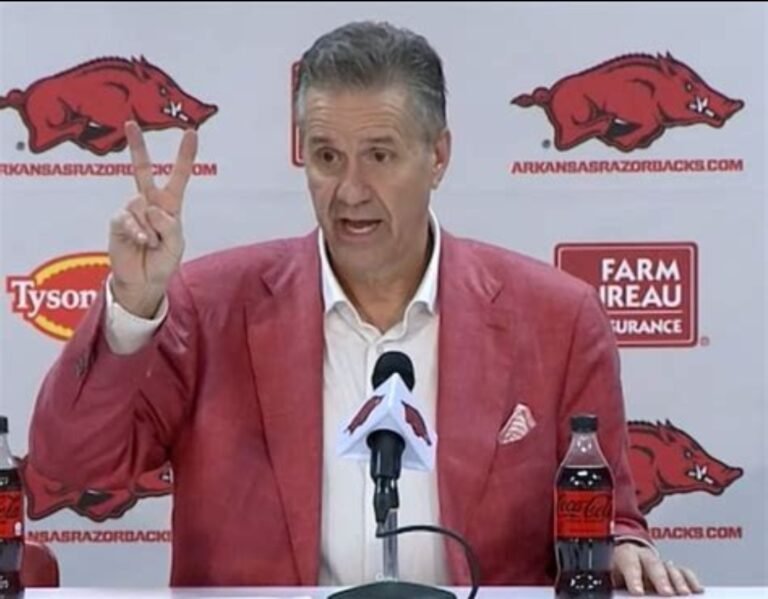In a recent press conference following Arkansas’ narrow 85-81 loss to Alabama, Razorbacks head coach John Calipari made remarks that have ignited significant controversy within the NCAA community.
Calipari attributed the defeat to his team’s “lack of fearlessness” in the game’s final moments, suggesting that hesitation and a lack of aggression were pivotal in the loss. He emphasized the need for his players to exhibit greater courage under pressure, stating that their reluctance to take decisive action was a critical factor in the outcome.
These comments have sparked a widespread backlash, with many interpreting them as Calipari deflecting responsibility onto his players rather than acknowledging potential coaching shortcomings. Critics argue that it is the coach’s role to prepare and instill confidence in the team, and that publicly attributing the loss to the players’ mindset may undermine their morale and development.
This incident is not an isolated one for Calipari. Throughout his tenure at both Kentucky and Arkansas, he has been known for his candid and sometimes contentious statements. For instance, during his time at Kentucky, Calipari faced criticism for comments about the NCAA transfer portal, where he expressed concerns over older players competing against freshmen and sophomores, citing safety issues. This perspective was viewed by some as hypocritical, given his history of recruiting one-and-done players who spend only a single season in college basketball before turning professional.
Additionally, Calipari has been labeled as “archaic” by an anonymous SEC coach, who suggested that the game has evolved beyond Calipari’s coaching methods. The coach remarked, “There’s just no fear now when I see him on the other sideline. The game has changed and he is becoming archaic.”
The recent comments have intensified discussions about Calipari’s coaching approach and his relationship with players. Supporters argue that his directness is a motivational tool designed to challenge and inspire his team to perform at their highest level. They point to his successful track record, including a national championship and multiple Final Four appearances, as evidence of his effective leadership.
However, detractors contend that such public critiques can erode player confidence and may reflect a reluctance to accept personal accountability for team performance. They suggest that a more supportive and introspective approach could foster better team cohesion and resilience.
As the debate continues, the incident underscores the broader challenges coaches face in high-stakes collegiate athletics. Balancing candid assessments with encouragement, adapting to the evolving dynamics of the game, and maintaining strong relationships with players are all critical components of sustained success.
For Calipari and the Arkansas Razorbacks, the path forward will require introspection and adjustment. Addressing both the external criticisms and internal dynamics will be essential as they aim to rebound from the recent loss and strengthen their performance in the remainder of the season.
In the high-pressure environment of NCAA basketball, the ability to navigate controversy, learn from setbacks, and foster a resilient team culture remains paramount. How Coach Calipari and his team respond to this moment will be closely watched by supporters and critics alike.
For a visual representation of Coach Calipari during the press conference, you can refer to the following image:



